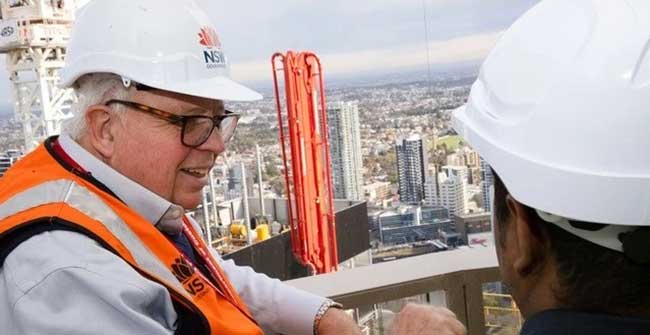Public confidence in the national construction industry has taken a hit in recent years following a series of high-profile incidents involving defective buildings.
As part of the NSW response, the Office of the Building Commissioner (OBC) launched Construct NSW, a comprehensive reform strategy aimed at restoring the sector’s reputation and improving the standard of the state’s building sites, where a lack of understanding of regulatory requirements had become a problem.
Compliance with Australian Building Standards has been a centrepiece of the NSW reform.
Standards set out guidelines that aim to ensure products, services, and systems are safe, consistent, and reliable. They cover a variety of subjects, including consumer products and services, the environment, energy, water utilities, and more. Standards also play a critical role in the built environment. The relevant construction standards are part of the National Construction Code, which sets out design and construction requirements, best practices and procedures.

David Chandler OAM, NSW Building Commissioner. Source: Supplied
For the NSW Building Commissioner, David Chandler OAM, a better understanding of these standards is critical to winning back the trust of residents.
“Construction workers have a special contract with society,” he says. “Society trusts the built world, but if they can’t do that, we start to take away some of the basic foundations of how we live, work and move around.
“My ambition is that we get the confidence of the consumers back in the residential market.”
Partnering for change
To raise awareness and knowledge, the OBC approached Standards Australia, the country’s peak standards body, to develop an online learning resource.
The resulting course, the Value of Australian Standards, introduces how and why Australian Standards are used in construction and the possible repercussions of not adhering to relevant Australian Standards.
So far, more than 9,000 people have completed the course, a number expected to double this year. It’s now hoped similar schemes will be built for other aspects of the building industry.
“Safety is paramount for the building trade,” Standards Australia Head of Commercial Partnerships, Daniel Chidgey, says. “The OBC saw a pressing need to improve the recognition and awareness of standards, so we worked with them on a solution.”
For Mr Chandler, the partnership has been a massive success. “It’s been fantastic working with Standards Australia because we both understand the challenges faced in helping build the skills of an entire industry. It’s been a terrific collaboration.”
Standards Australia is now in discussions with other industry leaders about devising innovative solutions, such as eLearning programs, that would benefit the industry and the Australian community.
Mr Chidgey believes online learning is a smart way to educate the market at scale.
“We have a vast range of standards that have provided invaluable guidance for almost every part of the economy,” he says. “But we must help professionals and businesses discover and navigate the relevant information.”
Potential for other sectors
The eLearning method is a first for Standards Australia and represents a key shift to a more proactive approach.
“In the past, we’ve mainly just focused on developing the guidelines with industry experts”, Mr Chidgey says. “Developing the content is still core business, but we are also taking a more active role in delivering whole-product solutions across the customer value chain.”
Mr Chidgey sees huge potential for other government bodies to leverage the power of standards, with opportunities for industries such as transport, agriculture, energy and manufacturing.
“If compliance is a problem, working with a respected standards organisation is a smart solution, as we know how to develop a trusted and reliable solution.”
Ongoing collaboration
After seeing the success of the first online course, the OBC once again reached out to Standards Australia to help address another critical issue in the building industry.
Last year, an audit by NSW Fair Trading inspectors revealed nearly half of all the apartment blocks in NSW had serious fire safety defects. The findings prompted the state government to introduce a range of reforms to boost compliance and reduce the risk to residents.
To help improve knowledge within the industry, a new online course has been developed to assist fire technicians and practitioners in navigating through the legislation and how to apply fire protection standards.
The decision to partner with Standards Australia again was a simple one for Mr Chandler.
“We’re delighted to collaborate with Standards Australia again on this important educational resource,” he said. “Our goal is to lift industry skills, and Australian Standards provide a critical platform from which we can build those skills.”
Standards Australia is transforming how it works, and the industry can expect more innovative solutions to support the Australian industry and communities.
This content is sponsored by Standards Australia and published on Government News.

